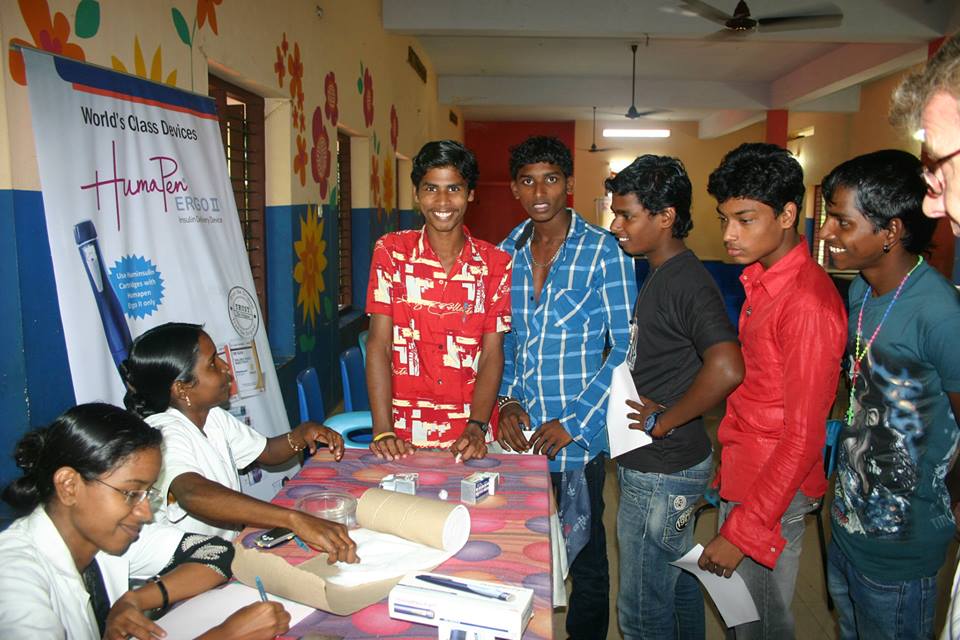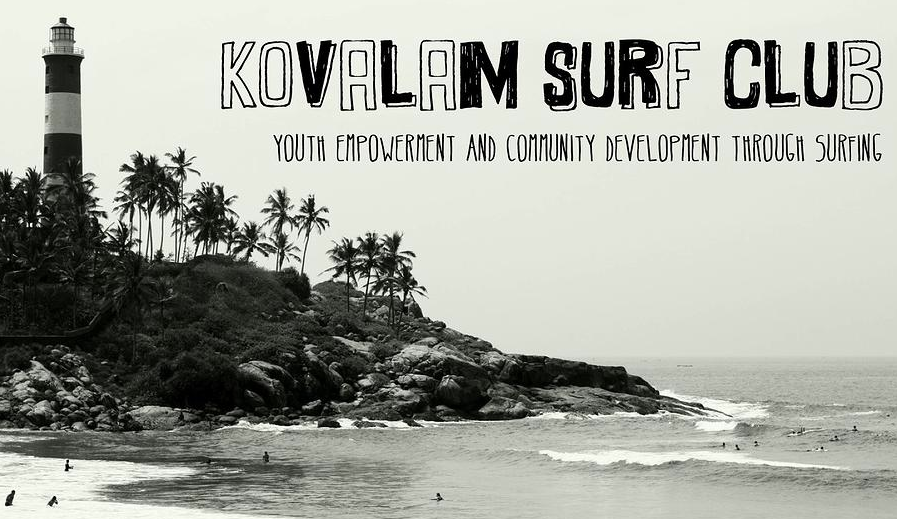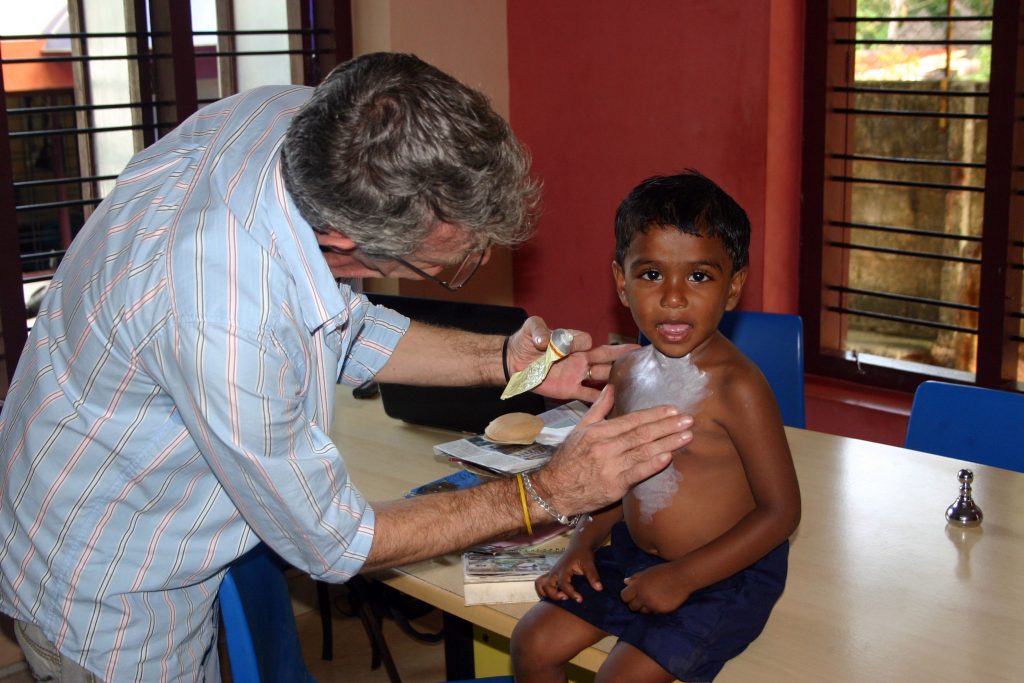A PHP Error was encountered
Severity: 8192
Message: Creation of dynamic property Login::$ci is deprecated
Filename: libraries/Tank_auth.php
Line Number: 25
A PHP Error was encountered
Severity: 8192
Message: Creation of dynamic property Login::$CI is deprecated
Filename: libraries/Login.php
Line Number: 11
A PHP Error was encountered
Severity: 8192
Message: Creation of dynamic property Breadcrumbs::$ci is deprecated
Filename: libraries/Breadcrumbs.php
Line Number: 29
A PHP Error was encountered
Severity: 8192
Message: Creation of dynamic property Breadcrumbs::$tag_open is deprecated
Filename: libraries/Breadcrumbs.php
Line Number: 33
A PHP Error was encountered
Severity: 8192
Message: Creation of dynamic property Breadcrumbs::$tag_close is deprecated
Filename: libraries/Breadcrumbs.php
Line Number: 34
A PHP Error was encountered
Severity: 8192
Message: Creation of dynamic property Breadcrumbs::$divider is deprecated
Filename: libraries/Breadcrumbs.php
Line Number: 35
A PHP Error was encountered
Severity: 8192
Message: Creation of dynamic property Breadcrumbs::$crumb_open is deprecated
Filename: libraries/Breadcrumbs.php
Line Number: 36
A PHP Error was encountered
Severity: 8192
Message: Creation of dynamic property Breadcrumbs::$crumb_close is deprecated
Filename: libraries/Breadcrumbs.php
Line Number: 37
A PHP Error was encountered
Severity: 8192
Message: Creation of dynamic property Breadcrumbs::$crumb_last_open is deprecated
Filename: libraries/Breadcrumbs.php
Line Number: 38
A PHP Error was encountered
Severity: 8192
Message: Creation of dynamic property Breadcrumbs::$crumb_divider is deprecated
Filename: libraries/Breadcrumbs.php
Line Number: 39
A PHP Error was encountered
Severity: 8192
Message: Creation of dynamic property CI_Loader::$load is deprecated
Filename: core/Loader.php
Line Number: 932
A PHP Error was encountered
Severity: 8192
Message: Creation of dynamic property CI_Loader::$is_admin is deprecated
Filename: core/Loader.php
Line Number: 932
A PHP Error was encountered
Severity: 8192
Message: Creation of dynamic property CI_Loader::$gtranslate_available_languages is deprecated
Filename: core/Loader.php
Line Number: 932
A PHP Error was encountered
Severity: 8192
Message: Creation of dynamic property CI_Loader::$benchmark is deprecated
Filename: core/Loader.php
Line Number: 932
A PHP Error was encountered
Severity: 8192
Message: Creation of dynamic property CI_Loader::$hooks is deprecated
Filename: core/Loader.php
Line Number: 932
A PHP Error was encountered
Severity: 8192
Message: Creation of dynamic property CI_Loader::$config is deprecated
Filename: core/Loader.php
Line Number: 932
A PHP Error was encountered
Severity: 8192
Message: Creation of dynamic property CI_Loader::$log is deprecated
Filename: core/Loader.php
Line Number: 932
A PHP Error was encountered
Severity: 8192
Message: Creation of dynamic property CI_Loader::$utf8 is deprecated
Filename: core/Loader.php
Line Number: 932
A PHP Error was encountered
Severity: 8192
Message: Creation of dynamic property CI_Loader::$uri is deprecated
Filename: core/Loader.php
Line Number: 932
A PHP Error was encountered
Severity: 8192
Message: Creation of dynamic property CI_Loader::$router is deprecated
Filename: core/Loader.php
Line Number: 932
A PHP Error was encountered
Severity: 8192
Message: Creation of dynamic property CI_Loader::$output is deprecated
Filename: core/Loader.php
Line Number: 932
A PHP Error was encountered
Severity: 8192
Message: Creation of dynamic property CI_Loader::$security is deprecated
Filename: core/Loader.php
Line Number: 932
A PHP Error was encountered
Severity: 8192
Message: Creation of dynamic property CI_Loader::$input is deprecated
Filename: core/Loader.php
Line Number: 932
A PHP Error was encountered
Severity: 8192
Message: Creation of dynamic property CI_Loader::$lang is deprecated
Filename: core/Loader.php
Line Number: 932
A PHP Error was encountered
Severity: 8192
Message: Creation of dynamic property CI_Loader::$cache is deprecated
Filename: core/Loader.php
Line Number: 932
A PHP Error was encountered
Severity: 8192
Message: Creation of dynamic property CI_Loader::$db is deprecated
Filename: core/Loader.php
Line Number: 932
A PHP Error was encountered
Severity: 8192
Message: Creation of dynamic property CI_Loader::$session is deprecated
Filename: core/Loader.php
Line Number: 932
A PHP Error was encountered
Severity: 8192
Message: Creation of dynamic property CI_Loader::$users is deprecated
Filename: core/Loader.php
Line Number: 932
A PHP Error was encountered
Severity: 8192
Message: Creation of dynamic property CI_Loader::$ta_users is deprecated
Filename: core/Loader.php
Line Number: 932
A PHP Error was encountered
Severity: 8192
Message: Creation of dynamic property CI_Loader::$login is deprecated
Filename: core/Loader.php
Line Number: 932
A PHP Error was encountered
Severity: 8192
Message: Creation of dynamic property CI_Loader::$order is deprecated
Filename: core/Loader.php
Line Number: 932
A PHP Error was encountered
Severity: 8192
Message: Creation of dynamic property CI_Loader::$shipping_cost is deprecated
Filename: core/Loader.php
Line Number: 932
A PHP Error was encountered
Severity: 8192
Message: Creation of dynamic property CI_Loader::$address is deprecated
Filename: core/Loader.php
Line Number: 932
A PHP Error was encountered
Severity: 8192
Message: Creation of dynamic property CI_Loader::$db_cart is deprecated
Filename: core/Loader.php
Line Number: 932
A PHP Error was encountered
Severity: 8192
Message: Creation of dynamic property CI_Loader::$globals is deprecated
Filename: core/Loader.php
Line Number: 932
A PHP Error was encountered
Severity: 8192
Message: Creation of dynamic property CI_Loader::$mail_messages_queue is deprecated
Filename: core/Loader.php
Line Number: 932
A PHP Error was encountered
Severity: 8192
Message: Creation of dynamic property CI_Loader::$my_brevo is deprecated
Filename: core/Loader.php
Line Number: 932
A PHP Error was encountered
Severity: 8192
Message: Creation of dynamic property CI_Loader::$user_mail_settings is deprecated
Filename: core/Loader.php
Line Number: 932
A PHP Error was encountered
Severity: 8192
Message: Creation of dynamic property CI_Loader::$email is deprecated
Filename: core/Loader.php
Line Number: 932
A PHP Error was encountered
Severity: 8192
Message: Creation of dynamic property CI_Loader::$form_validation is deprecated
Filename: core/Loader.php
Line Number: 932
A PHP Error was encountered
Severity: 8192
Message: Creation of dynamic property CI_Loader::$agent is deprecated
Filename: core/Loader.php
Line Number: 932
A PHP Error was encountered
Severity: 8192
Message: Creation of dynamic property CI_Loader::$breadcrumbs is deprecated
Filename: core/Loader.php
Line Number: 932
A PHP Error was encountered
Severity: 8192
Message: Creation of dynamic property CI_Loader::$calendar is deprecated
Filename: core/Loader.php
Line Number: 932
A PHP Error was encountered
Severity: 8192
Message: Creation of dynamic property CI_Loader::$category is deprecated
Filename: core/Loader.php
Line Number: 932
A PHP Error was encountered
Severity: 8192
Message: Creation of dynamic property CI_Loader::$comment is deprecated
Filename: core/Loader.php
Line Number: 932
A PHP Error was encountered
Severity: 8192
Message: Creation of dynamic property CI_Loader::$continent is deprecated
Filename: core/Loader.php
Line Number: 932
A PHP Error was encountered
Severity: 8192
Message: Creation of dynamic property CI_Loader::$country is deprecated
Filename: core/Loader.php
Line Number: 932
A PHP Error was encountered
Severity: 8192
Message: Creation of dynamic property CI_Loader::$currency is deprecated
Filename: core/Loader.php
Line Number: 932
A PHP Error was encountered
Severity: 8192
Message: Creation of dynamic property CI_Loader::$customer_shared_photo is deprecated
Filename: core/Loader.php
Line Number: 932
A PHP Error was encountered
Severity: 8192
Message: Creation of dynamic property CI_Loader::$dropdown_menu is deprecated
Filename: core/Loader.php
Line Number: 932
A PHP Error was encountered
Severity: 8192
Message: Creation of dynamic property CI_Loader::$landing_page is deprecated
Filename: core/Loader.php
Line Number: 932
A PHP Error was encountered
Severity: 8192
Message: Creation of dynamic property CI_Loader::$language is deprecated
Filename: core/Loader.php
Line Number: 932
A PHP Error was encountered
Severity: 8192
Message: Creation of dynamic property CI_Loader::$news is deprecated
Filename: core/Loader.php
Line Number: 932
A PHP Error was encountered
Severity: 8192
Message: Creation of dynamic property CI_Loader::$ngo is deprecated
Filename: core/Loader.php
Line Number: 932
A PHP Error was encountered
Severity: 8192
Message: Creation of dynamic property CI_Loader::$page is deprecated
Filename: core/Loader.php
Line Number: 932
A PHP Error was encountered
Severity: 8192
Message: Creation of dynamic property CI_Loader::$photo_favourite is deprecated
Filename: core/Loader.php
Line Number: 932
A PHP Error was encountered
Severity: 8192
Message: Creation of dynamic property CI_Loader::$photo_format is deprecated
Filename: core/Loader.php
Line Number: 932
A PHP Error was encountered
Severity: 8192
Message: Creation of dynamic property CI_Loader::$photo_mockup is deprecated
Filename: core/Loader.php
Line Number: 932
A PHP Error was encountered
Severity: 8192
Message: Creation of dynamic property CI_Loader::$photo is deprecated
Filename: core/Loader.php
Line Number: 932
A PHP Error was encountered
Severity: 8192
Message: Creation of dynamic property CI_Loader::$product_extra_option is deprecated
Filename: core/Loader.php
Line Number: 932
A PHP Error was encountered
Severity: 8192
Message: Creation of dynamic property CI_Loader::$product_frame_color is deprecated
Filename: core/Loader.php
Line Number: 932
A PHP Error was encountered
Severity: 8192
Message: Creation of dynamic property CI_Loader::$product_option is deprecated
Filename: core/Loader.php
Line Number: 932
A PHP Error was encountered
Severity: 8192
Message: Creation of dynamic property CI_Loader::$product_size is deprecated
Filename: core/Loader.php
Line Number: 932
A PHP Error was encountered
Severity: 8192
Message: Creation of dynamic property CI_Loader::$product_type is deprecated
Filename: core/Loader.php
Line Number: 932
A PHP Error was encountered
Severity: 8192
Message: Creation of dynamic property CI_Loader::$product is deprecated
Filename: core/Loader.php
Line Number: 932
A PHP Error was encountered
Severity: 8192
Message: Creation of dynamic property CI_Loader::$project is deprecated
Filename: core/Loader.php
Line Number: 932
A PHP Error was encountered
Severity: 8192
Message: Creation of dynamic property CI_Loader::$quote is deprecated
Filename: core/Loader.php
Line Number: 932
A PHP Error was encountered
Severity: 8192
Message: Creation of dynamic property CI_Loader::$search_input is deprecated
Filename: core/Loader.php
Line Number: 932
A PHP Error was encountered
Severity: 8192
Message: Creation of dynamic property CI_Loader::$search_redirect is deprecated
Filename: core/Loader.php
Line Number: 932
A PHP Error was encountered
Severity: 8192
Message: Creation of dynamic property CI_Loader::$seo_text is deprecated
Filename: core/Loader.php
Line Number: 932
A PHP Error was encountered
Severity: 8192
Message: Creation of dynamic property CI_Loader::$tracking is deprecated
Filename: core/Loader.php
Line Number: 932
A PHP Error was encountered
Severity: 8192
Message: Creation of dynamic property CI_Loader::$translation is deprecated
Filename: core/Loader.php
Line Number: 932
A PHP Error was encountered
Severity: 8192
Message: Creation of dynamic property CI_Loader::$user is deprecated
Filename: core/Loader.php
Line Number: 932
Magazine | Photocircle.net
Until Midnight: 20% discount on all prints with the voucher code WALL20 – Calendars are already discounted!
Photos of popular artists
Popular poster collections
Popular acrylic glass prints
This is where we share updates on our partner NGOs’ work with you – so that you, our friends and loyal customers, too can see where the funds raised by us went, what they were used for and whom they’ve helped. Today: the Kovalam Surf Club in India.
The Kovalam Surf Club motivates kids from surrounding villages to get off the streets and into school by offering them free surf lessons – while simultaneously enforcing a strict “no school, no surfing” policy. With €350, we helped the NGO pay for their students’ health care.
Kovalam Surf Club, run by the Sebastian Indian Social Project (SISP), has been providing medical care for its students for the past 19 years. There are 50 students enrolled in the school this year, for whom they provide regular medical care, including medicine for common ailments (fever, cold, stomachache, headache, cramps, fungal infections, injuries etc.) on campus. Whenever necessary, they take the children to the hospital, paying for all expenses (consultation fee, surgery expenses, food expenses etc.). The organization also provides for dental health care (root canal treatment, cavity treatment etc.), as well as eye care, also paying for glasses. Aside from this kind of practical help, the NGO also conducts cancer awareness camps, diabetes awareness and prevention camps, camps for identifying heart related ailments as well as dengue and malaria prevention camps in association with reputed hospitals in the city.
SISP students come from impoverished backgrounds – hence, their families have difficulties in providing medical care for their children. During the initial days, when SISP started 19 years ago, every morning there would be a queue of students waiting to be treated for fungal infections, fever, Tuberculosis, and Dengue. With the help of regular medical intervention, the number of students who need medical care has reduced drastically over the years. Moreover, this way children with medical needs can attend school regularly – regardless of their medical conditions, which would otherwise limit their access to education. Manju, for instance, is 12 years old and partially blind, with her vision further deteriorating. The organization took her to four different hospitals in the city for treatment. After attending regular appointments, her vision stabilized.
134.587
Since 2021 we've already been able to plant 134.587 trees thanks to the wall art sold on Photocircle. They will absorb approximately 10.766.960 kg CO₂ within the next five years and improve the living conditions of the people locally.





